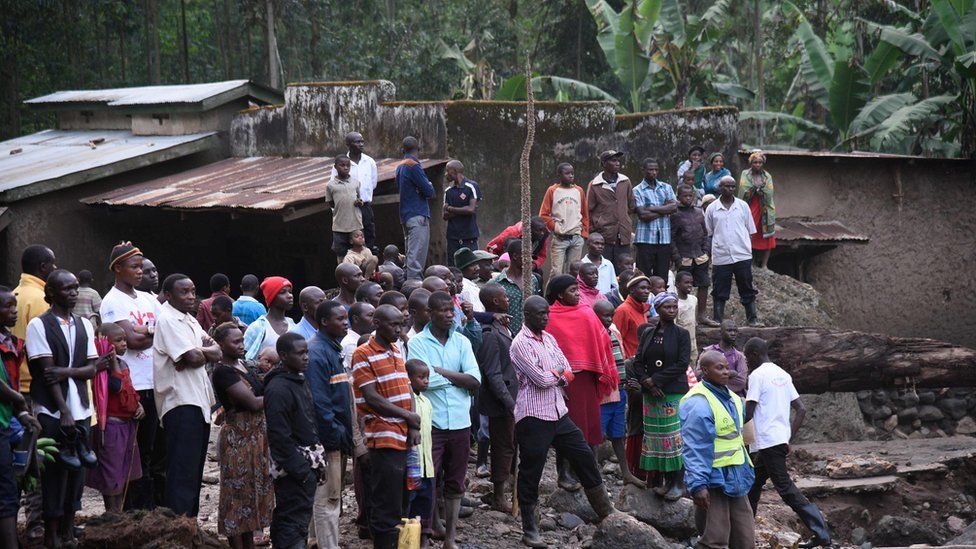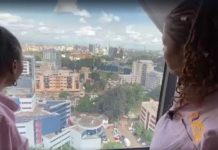By Faridah N Kulumba
Africa-Press-Uganda The Republic of Uganda is an East African country. Uganda is surrounded by Kenya, Tanzania, the Democratic Republic of Congo, South Sudan, and Rwanda. The southern part of the country includes a substantial portion of Lake Victoria, which they share with Tanzania and Kenya. The country also lies within the Nile basin and has a varied but generally modified equatorial climate. Uganda is home to 45 million persons. The rate at which the population is growing in Uganda in recent years contributes much to the social and livelihood challenges facing the country. The cost of living is below the global average, indicating massive socio-economic problems.
Poverty in Uganda
Uganda is one of the poorest countries in the world. In 2012, 37.8 percent of the population in Uganda lived on less than 1.25 USD per day. Even though the government tried to make numerous progress in reducing the countrywide poverty incidence from 56 percent of the population in 1992 to 24.5 percent in 2009, the poverty issue is still a big challenge in Uganda most especially in rural areas, which are home to 64 percent of Ugandans. The biggest number of people living in rural areas in Uganda depend on farming as their source of income and 90 percent of women in these areas work in the agricultural sector. This sector has faced many challenges such as climate change, lack of market for the commodities, conflicts between Uganda and neighboring countries, and for the last two years, it was affected by the Covid-19 pandemic lockdown where the movement was restricted.
Natural disasters
*Flooding-* Uganda is vulnerable to natural disasters like flooding and drought. The country has two main rainy seasons from March to May and October to November. During the rainy seasons most urban slum areas flood which affects poor people living in those areas due to the fact that there is always disruption in their properties and some lose lives. In the northeast of the country, there is always a high risk of landslides caused by floods.
Drought
Uganda is located in a tropical zone but its climate is relatively temperature due to its high elevation. The hot seasons are expected from December to January. A few years back the country started facing the challenge of climate change which is attributed to deforestation. The cattle keepers in the western region of Uganda are crying foul following the drought that has ravaged the area. The drought that started in December 2021 until today, has caused a shortage of pasture and water for their animals. Cattle keepers lost 996 cows in only three weeks.
Health risks
In Uganda, there is a high risk of Malaria throughout the country and most people who travel to Uganda are advised to take Malaria medication, most especially in Northern areas and Murchison Falls. Typhoid is another disease that has affected many Ugandans due to some regions with poor sanitary conditions. However, the government has tried to provide free vaccinations for most killer diseases such as polio, measles, diarrhea, and others.
Education challenges
Uganda, like many African countries, is facing many challenges to achieve the education sector goals. Some of these challenges are natural, some are financial in nature while others are economically and socially induced. However political challenges are also one of the major reasons why these goals are still not achievable. Some of the challenges include infrastructure. Some parts of Uganda are still facing the challenge of lack of education infrastructure and shortage of permanent classrooms in primary and secondary schools, particularly in poor areas, lack of school fees, Uganda’s education is expensive hence out of reach to ordinary Ugandans. In 1997 the government of Uganda in a bid to provide universal education adopted a policy on Universal Primary Education (UPE). This led to enrollment in primary schools increasing.
The elimination of school fees allowed more children from poor households to attend school. Even though this initiative was promising. The quality of UPE continues to remain a challenge due to poor maintenance and lack of quality education leading to parents of some children opting for private-owned schools which are expensive, lack of qualification, some teachers who are highly educated and qualified teachers choose not to be employed in government-owned schools due to the fact that they are underpaid, This is attributed to a lack of clear education policies geared towards the fulfillment of education for self-reliance.
Crimes
Crimes have become a growing problem in Uganda in recent years. The rate of violent crime is high compared to pre-2016 mostly against locals but also affecting foreign expatriates, poses the greatest risk of death and injury in Uganda. In only two months since Uganda fully opened up the country in January 2022, after the Covid-19 lockdown, the crimes are rising day by day due to pandemic effects. On 25 February a group of more than 10 men robbed and assaulted a diplomat with the Ethiopian Embassy in Kampala. The rise in crime is blamed on declining police efficacy in handling the issue which is attributed to corruption, underfunding, and politicization.
Crime risks, including armed robbery, murder, and ransom are so high in the capital city of Uganda Kampala, and other urban areas this is due to the fact that some Ugandans most especially the youth are so poor.
Instability
In Uganda, there have been some disruptions that usually occur from demonstrations over popular grievances. This always results in major property damage in urban areas. Another issue is terrorist threats. For the last ten years, Uganda has been challenged by terrorist attacks. There is an increased risk of attacks on security forces and local people by the militants, and armed raids into western Uganda by Allied Democratic Forces (ADF) affiliated to al-Shabaab based in DRC who cooperate with Ugandan criminal networks. Since 2010, al-Shabaab militants and their proxies have been terrorizing with bombs Uganda. On November 16, 2021, ISIL (ISIS) claimed responsibility for the attack, which killed seven people, including the three bombers, and injured dozens. These terror attacks have threatened many Ugandans’ lives.
Border Challenges
Uganda has been facing challenges of security along some borders surrounding the country due to conflicts. is a landlocked country. The country’s strategic security environment is characterized by her lack of access to the sea coast, the shallow strategic depth, shared natural resources, as well as regional and international obligations. Over, Uganda’s security threats have diversified to include non-military ones for instance environmental degradation, epidemic, that are sometimes characterized by instability and social upheaval.
Transport infrastructure
Uganda’s road infrastructure is often in a state of disrepair. The narrow roads and potholes contribute a lot to high rates of traffic fatalities. According to the World Health Organisation (WHO) data published in 2018, Uganda ranked in 15 positions in the world with the highest road crashes. Road crash deaths reached 11,730 0r 4.5 percent total deaths. Some roads mostly in rural areas have affected the agricultural sector which is the backbone of the nation due to the fact that many producers find it hard to transport their commodities to the market






